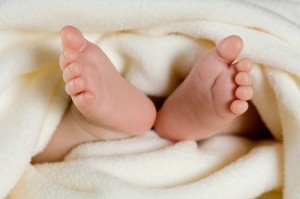 A new study determined that women who give birth after age 33 had twice the odds of having a longer lifespan than women who did not do so. This doesn’t necessarily mean you should consider having a baby (or another baby) after age 33 in an effort to increase your lifespan. The reality is a bit more complex than that.
A new study determined that women who give birth after age 33 had twice the odds of having a longer lifespan than women who did not do so. This doesn’t necessarily mean you should consider having a baby (or another baby) after age 33 in an effort to increase your lifespan. The reality is a bit more complex than that.
Researchers at Boston University, Boston Medical Center (and elsewhere) conducted a study about aging. They looked at information that was gathered in a previous study that was called the Long Life Family Study. In other words, this study used previously gathered data.
The researchers compared two groups of women who were in the Long Life Family Study. One group was made up of 311 women who lived to at least age 95. The other group consisted of 151 women who died at younger ages. They found that women who gave birth after they had reached age 33 had twice the odds of living to become 95 years old, as compared to the control group who had their last child by age 29.
What does this study mean for women? Unfortunately, the study doesn’t actually give women any practical advice for extending their lifespan. It doesn’t mean that you should wait to have a child until after you reach age 33, either.
Instead, this study gives some clues about a potential connection between longevity and fertility. More studies need to be done in order to learn more. The researchers did not find the exact reason why women who had babies after turning 33 tended to live longer than women who had their children before age 33. Perhaps it has something to do with genetics? No one knows.
In general, fertility declines with age. There are many women who decide to use reproductive technologies, such as IVF, in order to get pregnant. Often, these women are in their late 30’s and early 40’s. The researchers note that women who used reproductive technologies to become pregnant at a later age did not automatically receive the longevity benefit.
There is potential that going through menopause at an older age could be a marker for slower aging in general. That has not been determined by this study, though. More research needs to be done to find out more about the connection between longevity and extended fertility.
One thing the study does acknowledge is that it is sometimes possible for women to become pregnant at a later age without requiring reproductive technology in order for it to happen. This does not mean that younger women should wait to have a baby. One cannot reliably assume that one’s fertility will last as long as it did for some of the women in the Long Life Family Study.
Image by Kristen Burns on Flickr.
Related Articles:
* Study Says Older Moms Live Longer
* When are you too old to have a baby?
* Advantages of Being a Mid-life Mom

